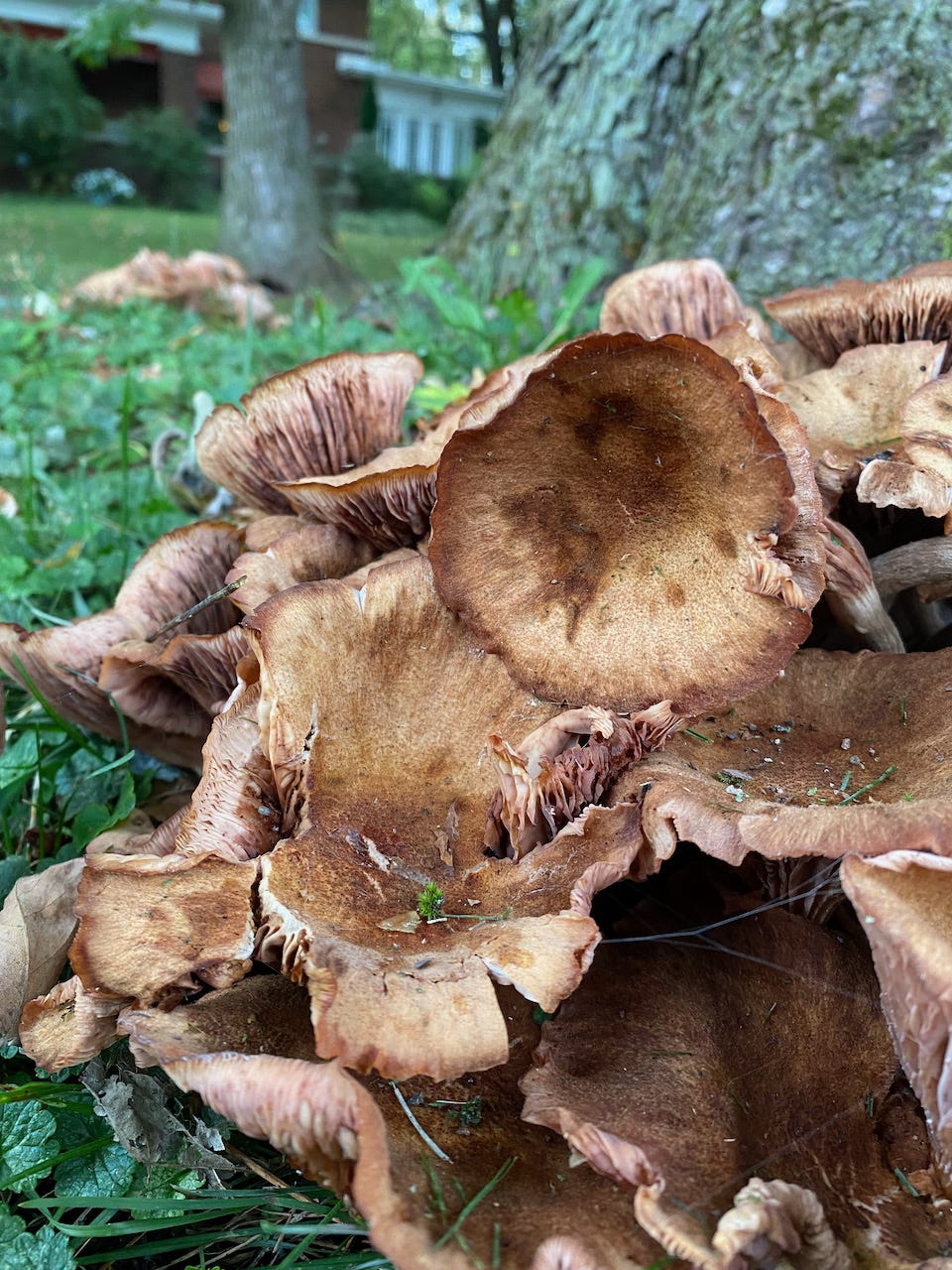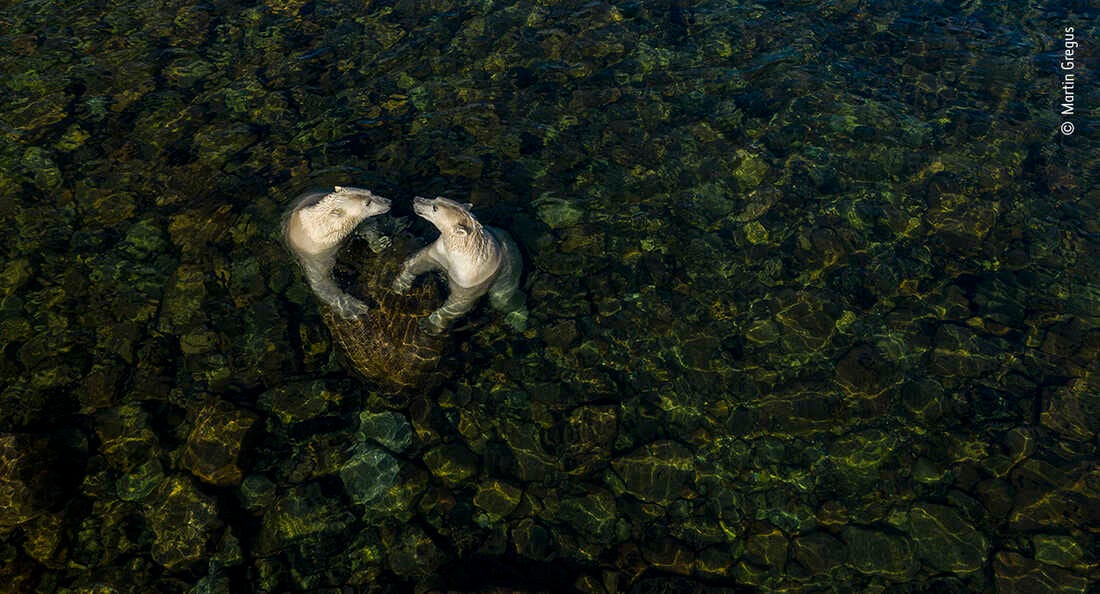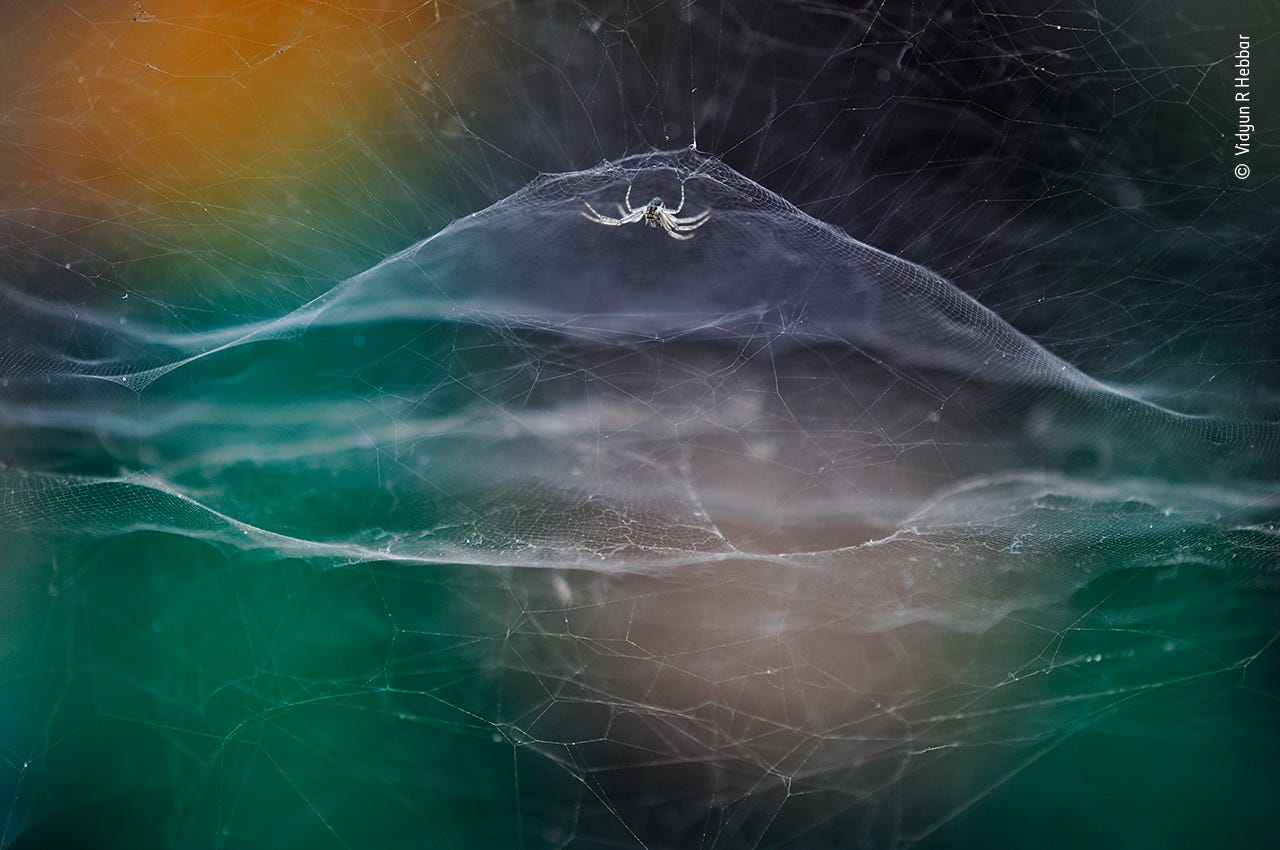The Wonder Report: October 15, 2021
Questions and Curiosity
According to the Farmers Almanac, we’re approaching peak leaf season here in Central Indiana. But apparently the trees missed the memo. There’s still plenty of green floating among the limbs. Which is okay with me, though … the longer Autumn lasts, the better.
We’re continuing our October theme this week by exploring the role of questions in living curiously. If you’ve been around these parts long, you know I like to ask a lot of questions myself. What about you, do you ask a lot of questions? (See, there I go again.)
Let’s get started.
1. Asking Questions for Information and Transformation
I’ve always been enamored by a well-formed question.
All the way back in high school, I participated in an annual youth conference at the college I would later attend. One year, during a Q&A session with the keynote speaker, a young man asked a question that quieted the whole auditorium. Before the speaker answered, he paused, held his hand up against the spotlight so he could look down at the kid behind the microphone, and said, “That’s a really good question.”
I was standing in line a few people back waiting to ask my own question. I marveled at the exchange—how a really good question could elicit just the right answer. But as my turn got closer and closer, I began to panic. Is my question good enough? Before I could find out, the moderator announced that we’d run out of time for any further questions. And I returned to my seat.
All these years later, I no longer remember the details of that Q&A session: what the teenager looked like, who the speaker was, or even what that one amazing question was. But what I have carried with me is a lesson that’s served me well throughout my life. There’s power in a good question.
::
Maybe you’ve noticed here on The Wonder Report or over on Instagram that I often start off questions with the phrase: “I wonder …” It’s not a nod to the name of this newsletter or even a clever branding strategy; it’s the way I often start my questions in real life. Just ask my husband: I move through the world in a state of constant, and occasionally tiring, curiosity.
I wonder what that smell is?
I wonder if that’s so-and-so’s new car?
I wonder whose cat that is?
I wonder when it’s supposed to rain?
I wonder what this tree is called?
I wonder where so-and-so went on vacation?
I wonder why the mail carrier changed his route?
In fact, if anything, the name of this newsletter is a nod to an insatiable curiosity that drives my writing and has me chasing after all kinds of mysteries and paradoxes. It’s not just the awe of beautiful and unexpected wonders that I circle around in this space. It’s also the flight of imagination, the hunt for knowledge, the quest for the unknown that happens when we can’t help but wonder.
::
While many questions start with wonder, they’re improved upon by connecting what we want to know with what we already know. A good question is rooted in context. Which also means, then, that the path to asking great questions includes becoming a good researcher, a good observer, a good learner, and most importantly, a good listener.
As a writer, asking questions is one of my most important tools, particularly when I’m writing about someone else’s life and experiences. So to prepare for interviews, I often find out as much as possible about the person I’m going to speak with. Then, I form my questions around what I know, tediously writing out each question in my notepad with plenty of room for their answers.
What invariably happens, though, is once they start talking, I think of a dozen other questions based on what they’re telling me. Instead of the organized note-taking of questions followed by answers that I anticipated, I’m left scribbling in the responses to questions I hadn’t planned to ask wherever there’s an empty space on the page.
Harvard researchers would characterize these as “follow-up” questions, and of the four types of questions—introductory questions (“How are you?”), mirror questions (“I’m fine. How are you?”), full-switch questions (ones that change the topic entirely), and follow-up questions (ones that solicit more information)—these are particularly compelling.
“Although each type is abundant in natural conversation, follow-up questions seem to have special power. They signal to your conversation partner that you are listening, care, and want to know more,” write Harvard researchers Alison Wood Brooks and Leslie K. John, in a 2018 Harvard Business Review article called “The Surprising Power of Questions.” “People interacting with a partner who asks lots of follow-up questions tend to feel respected and heard.”
But good questions share a few other qualities, too.
They’re specific and concrete, eliciting answers from experience rather than simply speculation.
They’re open-ended, supporting many possible responses, not just “yes” or “no.”
They’re sincere, eliciting a response you’re truly interested in, not just a pleasantry or a set up.
They’re as helpful to the person being questioned as the one asking. Often, when a person being interviewed says, “That’s a good question,” it’s because it challenges them to think about something in a new way.
Of course the science behind good questions is much more complex than this simple bullet list. The purpose of the question asking matters immensely, as does the order of questions, the tone, even group dynamics. That Harvard Business Review article goes into all those specifics. But I love where they end up, the truly surprising part of question asking.
“Questions and thoughtful answers foster smoother and more-effective interactions, they strengthen rapport and trust, and lead groups toward discovery. All this we have documented in our research. But we believe questions and answers have a power that goes far beyond matters of performance. The wellspring of all questions is wonder and curiosity and a capacity for delight. We pose and respond to queries in the belief that the magic of a conversation will produce a whole that is greater than the sum of its parts.”
::
Asking good questions isn’t only a function of conversation. It’s also the impetus for learning, self-reflection, even faith.
In the Gospels, we find lots and lots of questions. For instance, a version of the word “ask” is included 136 times throughout the four accounts. And that’s just a fraction of all the questions. Some are directed to Jesus; sometimes He’s the one asking. And while I’m sure plenty of those questions were simply the stuff of everyday conversations between Jesus and his disciples, most of the ones that are recorded go much deeper than that. Here are a few from just one chapter in Luke’s gospel.
Is it lawful to do good or to do harm on the Sabbath, to save a life or to destroy it? (Luke 6:9)
If you do good to those who do good to you, what credit is that to you?
A blind man cannot guide a blind man, can he? (Luke 6:39)
Why do you look at the speck that is in your brother’s eye, but do not notice the log that is in your own eye? (Luke 6:41)
Why do you call me , “Lord, Lord,” and do not do what I say? (Luke 6:46)
It’s hard to wrap our minds around an all-knowing God who was also curious. But maybe Jesus’ questions were less about gathering information and more about the personal transformation of his listeners. By asking good questions, Jesus sparked the curiosity of those around him. He invited them to wonder what God was up to in the world and in their own lives.
And by asking good questions ourselves, we can do the same thing in others’ lives as well as our own.
I wonder … how often are you the one asking questions in conversations? Do you like it when other people ask you questions? What role do questions play in your own faith? How do you keep track of your questions? What questions do you feel Jesus is asking you right now?

2. Three Questions for Noticing
The Laws Guide to Nature Drawing and Journaling is a wonderful resource for nature lovers and artists alike. But one of the things I learned from author John Muir Laws is to ask better questions about the things I see around me.
Particularly, he suggests three questions to ask when we are observing something in nature. (By the way, they’re worded more as prompts than questions, but you can see that they have the same interrogative properties.)
I notice …
I wonder …
It reminds me of …
Nature observations aren’t the only occasion for asking these questions, though. Pull them out anytime you want to me more attentive, observant, and curious!
3. Curiosity and the Writing Life
Does this description of the writing life sound familiar?
“You will take bits from books you’ve read and movies you’ve seen and conversations you’ve had and stories friends have told you, and half the time you won’t even realize you’re doing it. I am a compost heap, and everything I interact with, every experience I’ve had, gets shoveled onto the heap where it eventually mulches down, is digested and excreted by worms, and rots. It’s from that rich, dark humus, the combination of what you encountered, what you know and what you’ve forgotten, that ideas start to grow.” — Ann Patchett, in “The Getaway Car,” collected in her book, This is The Story of a Happy Marriage
Curiosity doesn’t always lead us down a straight path. Sometimes, the things we’re most curious about lead us nowhere in particular at all. But when we keep following our hunches and asking questions, over time, the result is creativity and inspiration.
I wonder … how do you follow your own curiosity? What have you added to your own “compost heap” recently? What is an idea that’s come from the rich humus of your creative life?
H/T to Austin Kleon and his post “I am a compost heap” for reminding me of Patchett’s essay
4. A Gallery of Curiosity
London's Natural History Museum recently announced their 2021 Wildlife Photographer of the Year results, and the winning photos are stunning.
The annual Wildlife Photographer of the Year competition is the world's longest-running and most prestigious nature photography competition, and every one of these photographs left me more than a little curious about its subject.

I wonder … which one is your favorite? What questions did it make you ask?
5. Five Stories
This film short follows the curiosity of Canadian writer, actor and director R H Thomson by asking this question about our endless fascination for telling, hearing, and watching stories: “For all the possible stories out there, suffused with all the endless complexities and ambiguities of the world in which we find ourselves, why do we return to the same narratives over and over, as if scratching an insatiable, many millennia-long itch?”
Interestingly, while this short film explores this important question about story-telling itself, it also seems to be asking a bigger question about humanity, about all of us: Who are we without our stories?
Thanks again for sharing this time with me. If you’d like to send me a note or ask a question, you can hit reply and end up in my inbox. Or you can also leave a comment on this newsletter, which will live in the archive over on Substack. It’s one of my favorite features of this platform.
Thanks again for being a subscriber. One of the reasons I write is because of readers like you!
Until next time,
Charity





Such a great reflection on questioning, Charity - and I've just enjoyed the Canadian movie short and those National History Museum pics - WOW! (If you guys come to London, the museum is a must-visit and we'll join you!! :)). I love how you make the point that, in the Bible, often Jesus himself is doing the questioning. I can't stop thinking about that, and I find it so arresting when he does - as if, in the Living Word, he is questioning us, here and now (as with, "Who do you say I am?" Now I need to find that question!). I also love those nature journal prompts (esp the one that asks us what something reminds us of, and all that this can spark).